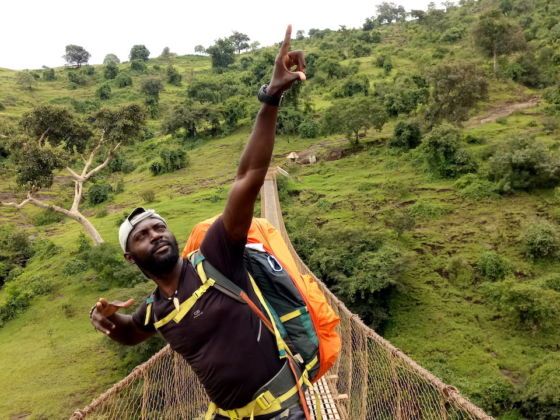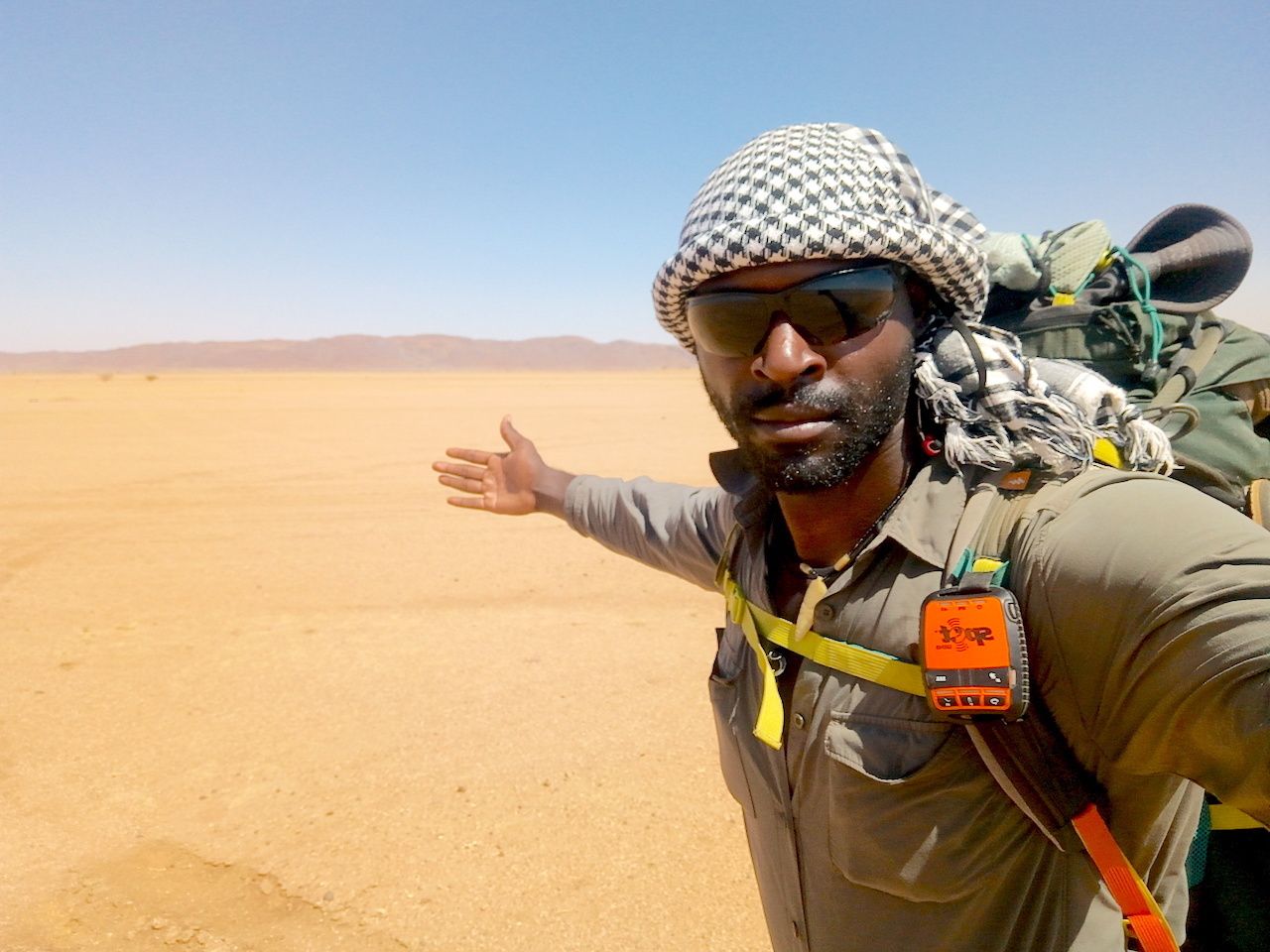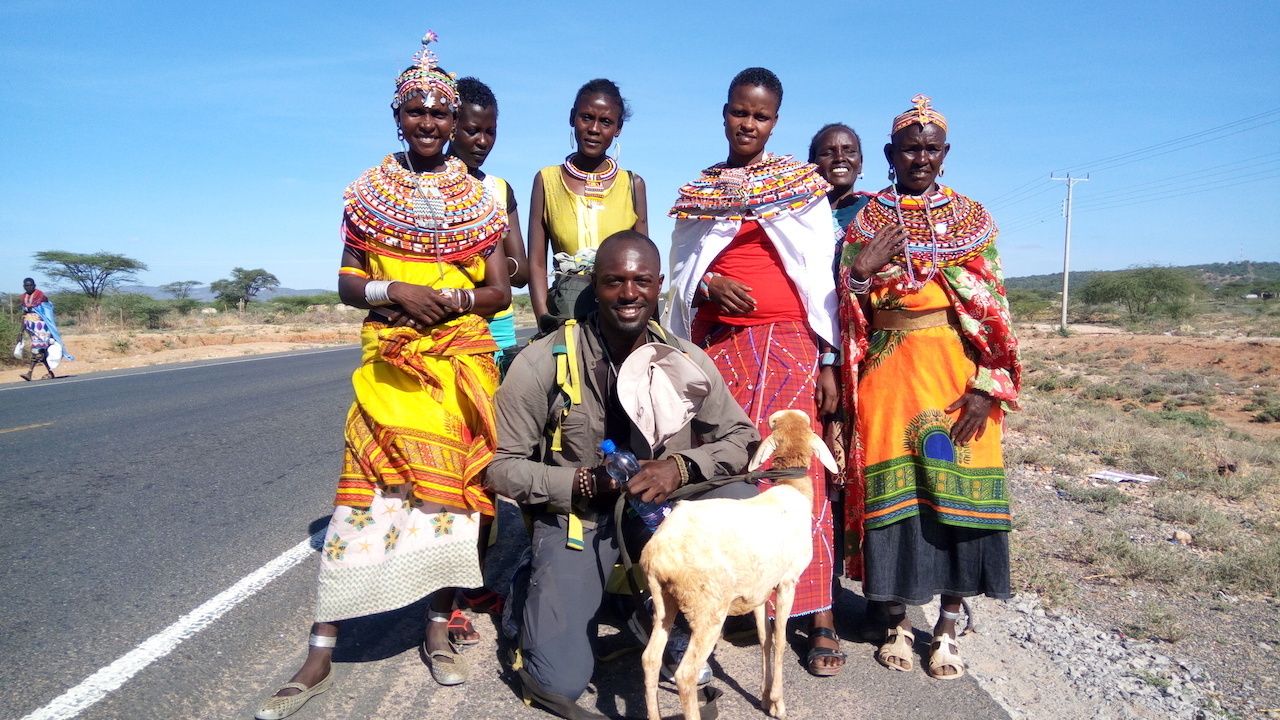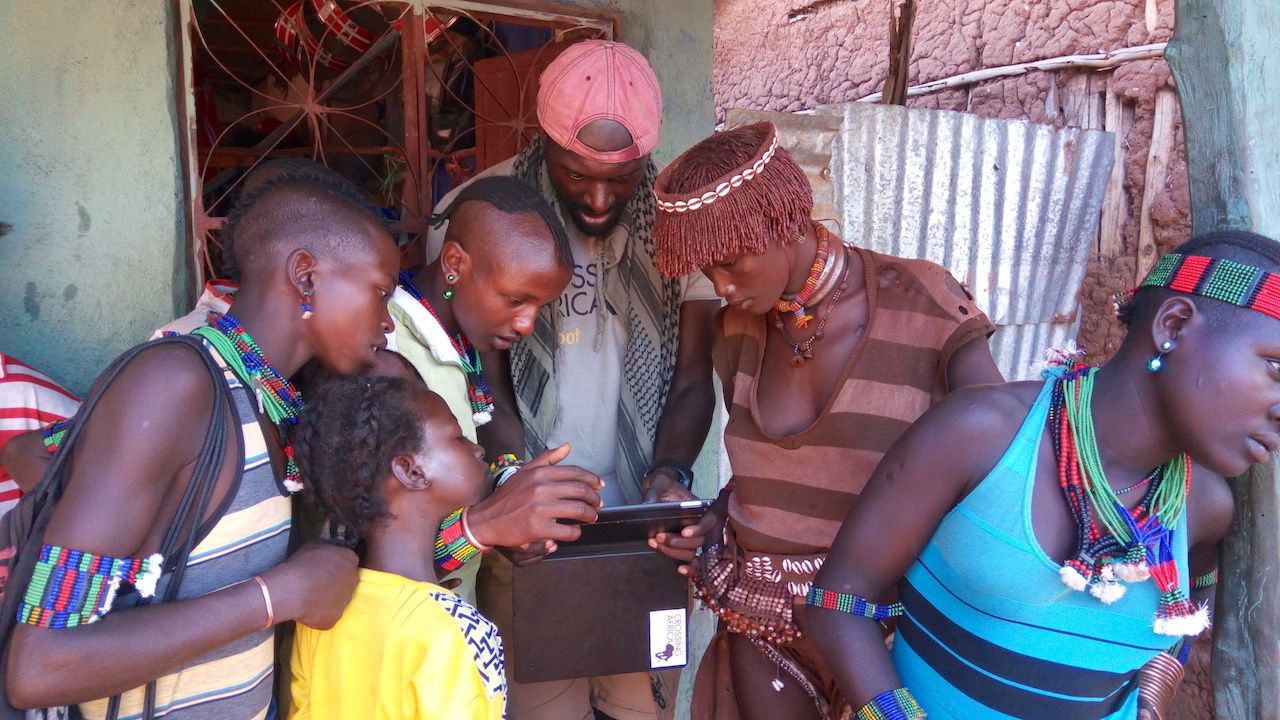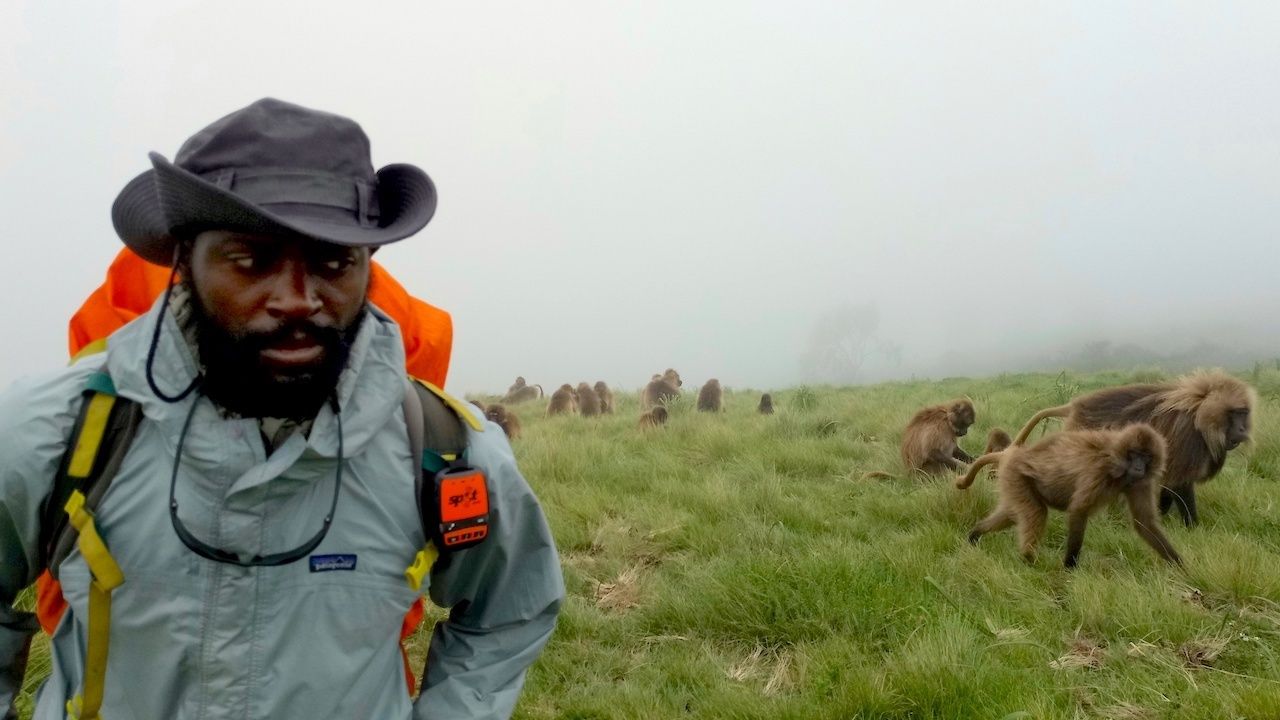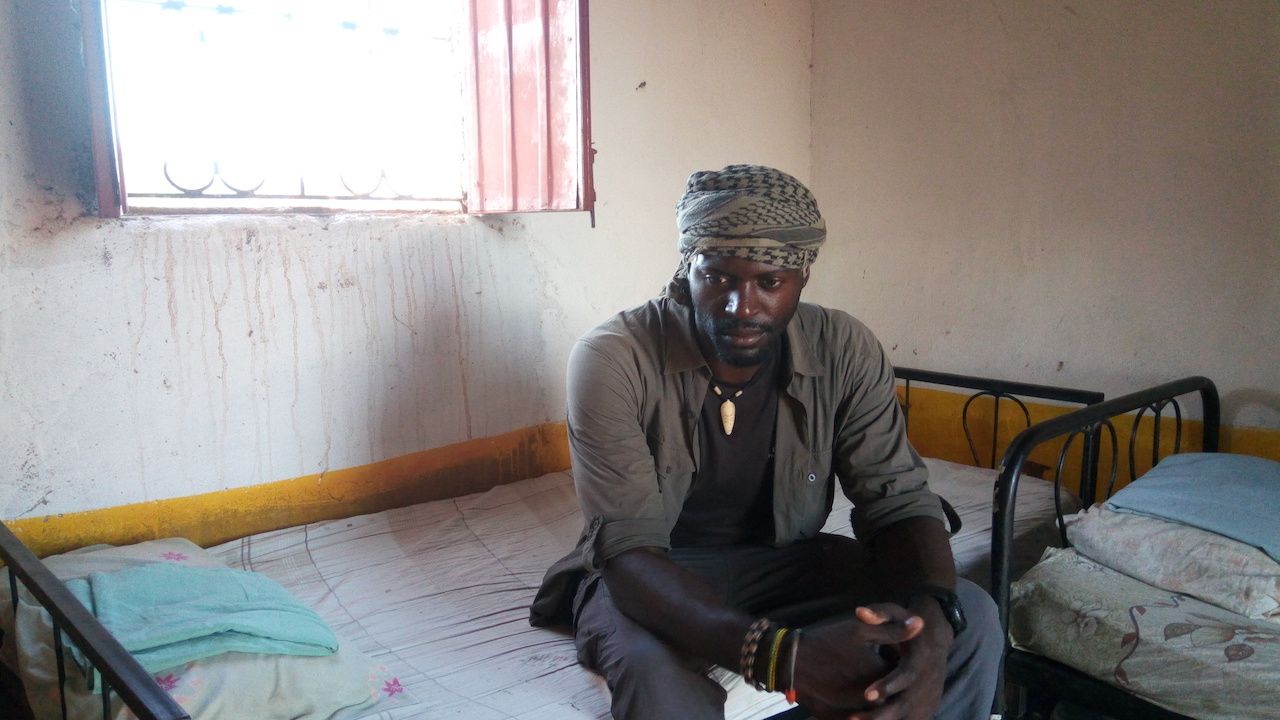“There are times when it’s actually easier to die than to keep going,” says explorer Mario Rigby, reflecting on his solo, two-plus year walk across the continent of Africa.
Rigby — who was born in the Turks and Caicos, ran track in Germany as a teenager, and now resides in Canada — began his journey in Cape Town, South Africa, traveling through Mozambique, Malawi, Tanzania, Kenya, Sudan, and Ethiopia on the way to his final destination of Cairo, Egypt. He walked nearly the whole way but spent two months kayaking his way across Lake Malawi. Many challenges arose along the way.
